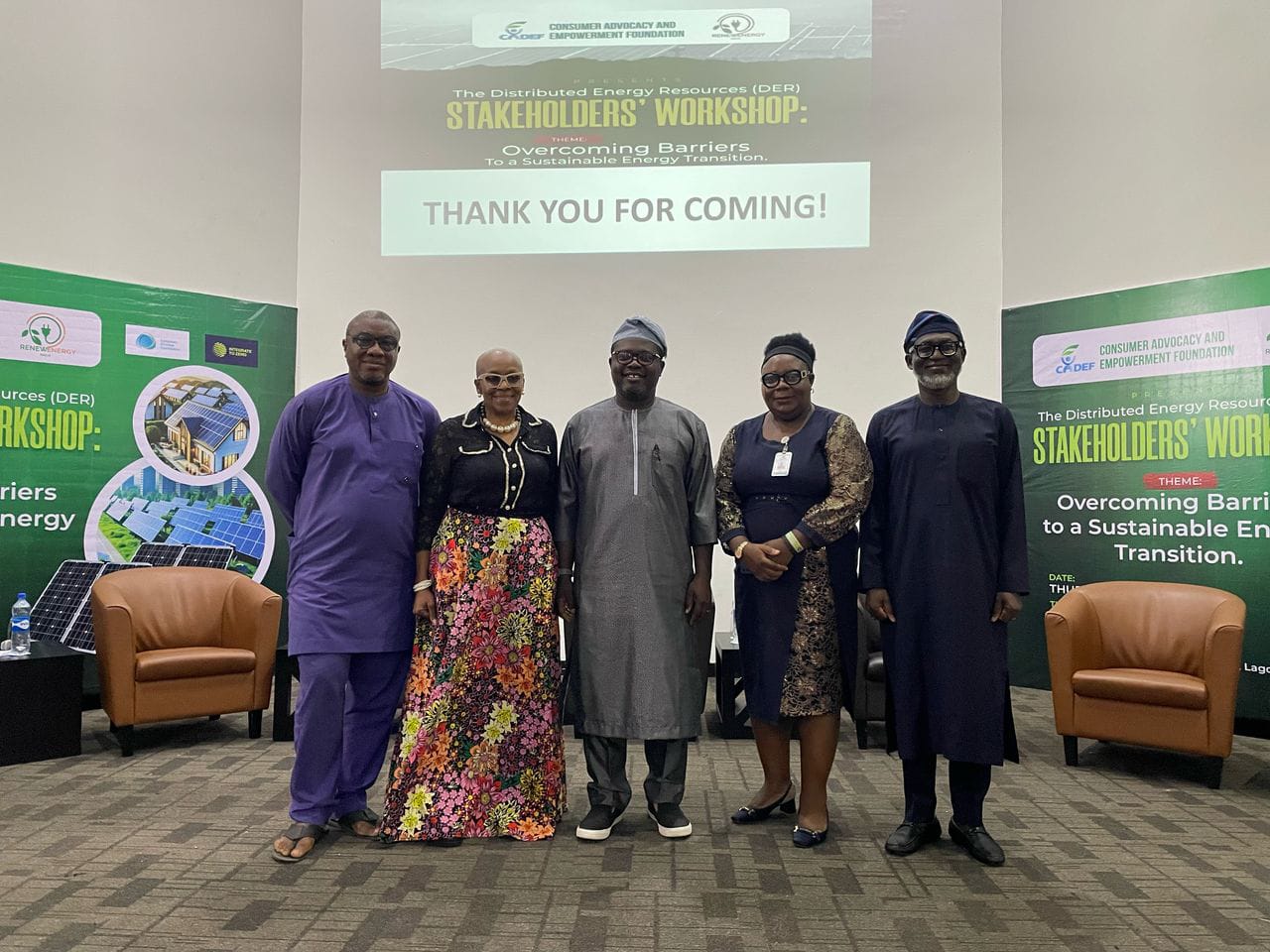This is contained in a statement signed by Dr Ejike Ndiulo, head of Corporate Communications, Air Peace, on Wednesday in Lagos.
According to Ndiulo, the decision is necessary because NiMet is the agency responsible for issuing CNH (Current Nowcast of Hazardous Weather) reports, critical for safe landings, especially during this season of heavy rainfall and thunderstorms.
He said without these reports from the control tower, flight safety could not be guaranteed.
“As a safety-first airline, we have chosen to act responsibly by suspending operations until NiMet resumes full service.
“We understand this may cause inconvenience, and we sincerely apologise. Passengers will be contacted with updates and options for rescheduling,” he said.
The staff of NiMET on Tuesday commenced an indefinite strike over the condition of service and other demands.
News
Nigerians to Pay N234 Per Litre of Petrol- NNPC

Mele Kyari, group managing director of Nigeria National Petroleum Corporation (NNPC), has said that the corporation can no longer bear the over N120 billion monthly subsidy for Premium Motor Spirit (PMS).

Kyari stated this during the weekly media briefing organised by the Presidential Communication Team at the State House, Abuja, on Thursday.
According to him, the actual cost of importation and handling charges amounts to N234 per litre, while the government is selling at N162 per litre.
He added that the NNPC absorbs the cost differential which is recorded in its financial books.
Kyari, however, said that since NNPC could no longer bear the cost, sooner or later Nigerians would have to pay the actual cost for the commodity.
According to the GMD, the NNPC pays between N100 billion and N120 billion a month to keep the pump price at the current levels.
He said that market forces must be allowed to determine the pump price of petrol in the country.
“Our current consumption (evacuation) from our depots is about 60million litres per day. We are selling at N162 a litre. Current market price is 234, actual market price today.
“The difference between the two, multiply by 60million, times thirty, will give you per month.
“This is a simple calculation you do. If you want exact figures from our book, I do not have it from this moment but it’s between N100billion and N120billion per month.
“We are putting the difference in the books of NNPC and we cannot continue to bear,’’ he said.
Timipre Sylva, minister of State for Petroleum Resources, who also spoke at the event, expressed the hope that the Petroleum Industry Bill (PIB) would be passed into law in April.
According to him, frantic efforts are being made by the legislators to complete work on the bill and pass it, in line with the aspirations of critical stakeholders in the petroleum sector.
“The National Assembly has expressed the intent to pass the PIB into law by April 2021, every effort is being made to support the National Assembly to meet this target,” he said.
While enumerating the gains of the PIB to Nigerians, the minister said it would create additional infrastructure across petroleum value chain.
He added that it would increase petroleum activities as well as enhance the livelihood of inhabitants of oil producing communities.
He said the bill would create additional infrastructure across the petroleum value chain especially from mid-stream and down-stream.
He added that critical infrastructure would also be developed, while utilising the incremental revenue from increased petroleum activities.
Sylva said it would also provide additional infrastructure in the host communities arising from the host community trust.
The minister further stated that more businesses would be set up to support increased activities within the petroleum value chain.
“Greater confidence would be engendered with certainty in the petroleum industry, which will lead to increased investments.
“Nigeria will occupy its place among commits of nations who have updated their petroleum industry laws in line with current realities.
“The bill will also enable a structured monetisation of fossil fuel resources before the whole world turns to renewables.
“It will also impact positively on the Nigerian economy with multiplier effect on the petroleum sector,’’ he said.
The minister also expressed the hope that the bill when passed, would lead to an increase in the use of gas for domestic purposes.
He said this would create a healthier society as well as provide job opportunities across the country.
News
Lagos Sets the Benchmark in Renewable Energy as CADEF Launches Transformative Platform

Against the backdrop of Lagos State’s proactive efforts to reform its electricity sector, the Consumer Advocacy and Empowerment Foundation (CADEF) has launched its ‘Renew Energy Nigeria’ platform, a nationwide initiative with potential synergies for the state’s ambitious energy goals.

Professor Chiso Ndukwe-Okafor, CADEF’s Executive Director, introduced the platform in Lagos, highlighting its aim to empower Nigerians with information and access to decentralized renewable energy (DER) solutions. “The launch of this platform marks a significant step towards democratizing access to information and resources within Nigeria’s burgeoning sustainable energy sector.”
The platform’s launch comes as Lagos State, under the Lagos State Electricity Law, is actively establishing a regulatory framework and attracting private sector investment. Kamaldeen Abiodun-Balogun, General Manager of the LSEB, detailed the state’s progress in creating a functional electricity market, ensuring payment security, and addressing infrastructure challenges. “This law enabled us to create policy documents and establish regulatory agencies to initiate the implementation of the Lagos electricity market,” he explained, adding that private sector involvement will be key in areas where existing Discos face performance issues.
Segun Adaju, a private sector player deeply engaged in the energy sector, lauded Lagos State’s leadership. “In all these, Lagos State is always setting the pace. Many of us in the private sector players like myself, we are also looking up to Lagos State to set the pace,” he said, also mentioning his work on the Centralized Renewable Energy Desk for the state government.
While acknowledging national-level challenges such as import restrictions and forex fluctuations as noted by Professor Ndukwe-Okafor: “The recent federal plan on restrictions on the importation of solar products and the fluctuation of forex rate have made clean energy solutions costly”, the focus on Lagos State’s progress suggests a promising local environment for DER adoption, potentially amplified by CADEF’s new platform.
The broader socio-economic context, as highlighted by Olumide Ajayi, “Over 40% of Nigerians do not have access to reliable electricity”, underscored the importance of initiatives like ‘Renew Energy Nigeria’ and the enabling policies being implemented in states like Lagos.
Professor Ndukwe-Okafor concluded with a powerful call to action. “This platform is not an isolated intervention. It is aligned with our ideal country’s national vision, the 30-30-30 initiative. Let us not build a solar future that only serves the wealthy. Let us democratize clean energy. Let us make it local, inclusive, and scalable.”
The launch of “Renew Energy Nigeria” marks a significant step towards a more sustainable and equitable energy future for Nigeria, driven by innovation, collaboration, and a commitment to empowering its citizens. The platform is now live and accessible to all Nigerians seeking reliable and clean energy alternatives
News
EFCC Secures Arrest Warrant for Six CBEX Promoters

A federal high court in Abuja has granted permission to the Economic and Financial Crimes Commission (EFCC) to arrest and detain six Crypto Bridge Exchange (CBEX) promoters over allegations of investment fraud to the tune of over one billion dollars.

Emeka Nwite, presiding judge, gave the order following an ex parte application moved by Fadila Yusuf, counsel to the EFCC.
In the application by the EFCC, the six suspects are Adefowora Olanipekun, Adefowora Oluwanisola, Emmanuel Uko, Seyi Oloyede, Avwerosuo Otorudo and Chukwuebuka Ehirim.
The commission sought an order of the court for a warrant of arrest of the defendants.
They also prayed the court for “an order remanding the defendants in the custody of the complainant/applicant pending the conclusion of investigation of the alleged offences and possible prosecution”.
Yusuf said that the defendants are at large and a warrant of arrest is required to arrest the defendants for proper investigation and prosecution of this case.
In the affidavit in support of the motion, the EFCC said preliminary investigation into the intel revealed that the defendants “using their company ST Technologies International Limited, promoted another company Crypto Bridge Exchange (CBEX) by making adverts and lured unsuspecting members of the public to invest crypto cryptocurrencies on the CBEX investment platform”.
The EFCC said the defendants promised an unrealistic return on investment of up to 100 percent.
“The victims were made to convert their digital assets into a stablecoin of USDT for onward deposit into the suspects’ crypto wallet,” Yusuf said.
“The victims were initially given full access to the platform to monitor their investment.
“Following the deposits valued at over $1 billion by the victims, the CBEX investment platform became inaccessible to them, and they could no longer withdraw from the investment made.
“The victims later discovered that the said scheme is a scam.
“During the course of investigation, it was discovered that the said ST Technologies International Limited, though registered with the Corporate Affairs Commission (CAC), it was not registered with the Securities and Exchange Commission (SEC) for investment purposes.
“It was also discovered during the investigation that the defendants had moved out of their last known address in Lagos and Ogun states.”
The anti-graft agency said obtaining a warrant of arrest was necessary in order to place the defendants on a watch list, enabling authorities to trace and apprehend the suspects to face the charges brought against them.
Nwite granted the request for a warrant of arrest and remand, adding that the order was necessary to enable the commission to apprehend the defendants and conclude its investigation.
“I have listened to the submission of the learned counsel for the applicant,” Nwite said.
“I have also gone through the affidavit evidence with exhibits thereto, along with the written address.
“I am of the view and I so hold that the application is meritorious.
“Consequently, the application is granted as prayed.”
Earlier in April, reports emerged that CBEX users could no longer withdraw their funds.
On Monday, angry investors stormed and looted the office of Smart Treasure (ST Team), an affiliate of CBEX, in Ibadan, Oyo State.
The EFCC recently confirmed receiving multiple complaints about the platform.
Dele Oyewale, the commission spokesperson, assured affected investors that efforts were underway to recover their funds.
News
Air Peace Suspends Flight Operations Nationwide


 E-Business2 days ago
E-Business2 days agoALX Nigeria Launches 2025 Ventures Incubator, Premieres Pan-African “Do Hard Things” Finale

 Telecom1 day ago
Telecom1 day agoMTN Appoints Egerton Idehen as Chief Broadband Officer

 General News1 day ago
General News1 day agoUBA Marks 75 Years of Excellence at 65th AGM

 Telecom1 day ago
Telecom1 day agoMTN Group Suffers Cyberattack

 Telecom1 day ago
Telecom1 day agoMTN Foundation Launches Skills Academy to Bridge Nigeria’s Digital Skills Gap

 E-Financial2 days ago
E-Financial2 days agoInsurance Bill Seeks Compensation for Customers of Failed Firms

 Telecom1 day ago
Telecom1 day agoLegend Internet Plc Makes History as First Indigenous Telecom Firm on NGX

 E-Financial2 days ago
E-Financial2 days agoFintechs Add $18m to New Tax Initiative
























